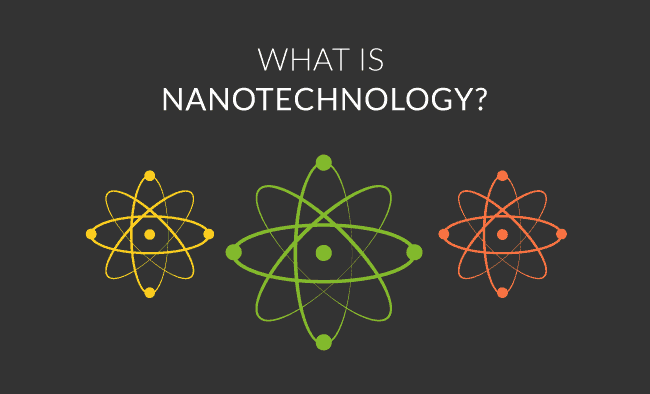Nanotechnology; discover how it will change our future
We can define nanotechnology as the technique that deals with the manipulation of matter at the nanoscale, which is a scale that moves in a range between 1 and 100 nanometres.
You are probably not very clear about what it means yet, so let’s have a deep look at it. Since one nanometre is equal to one billionth of a meter, we could simplify the definition and say that nanotechnology is a technique that seeks the manipulation of matter at extremely small size levels.
But even then, we will probably have our doubts when it comes to understanding the sizes we are talking about. Let’s have a look at the meaning of nanometre that we have found in Wikipedia ” a nanometre is the amount an average man’s beard grows in the time it takes him to raise the razor to his face.”
Have we gone mad? You cannot manipulate matter on such a small scale! Well, dear reader, it is possible that we have gone mad at some point in our lives, but you must know that the human being is already capable –although only to a limited extent –to manipulate matter at the nanoscale.
In fact, nanotechnology is a well-established discipline, which is even taught regularly at many universities. And besides, it is a very broad subject. Being a technical area defined by the size, we can say that any technology that is applied to nanoscale is nanotechnology; whether it is robotics, computer science, organic chemistry and material science, among many other disciplines.
The idea of nanotechnology was thought for the first time in 1959 by the famous physicist Nobel Prize winner, Richard Feynman, although there was not a name for it yet. At a conference at the California Institute of Technology, titled “There is plenty of room at the bottom,” Feynman first theorizes about the manipulation of matter at atomic level. Over time, the conference became a classic and it made history in science.
But perhaps Feynman was not the one who popularised this but the engineer K. Eric Drexler, known as “the Father of Nanotechnology”. In his book “Engines of Creation: The Coming Era of Nanotechnology”, Drexler explores the concept and speculates on the vision of a nanotechnological future. He even came up with the idea of a fantastic tool that could create any object with a level of detail at the nanoscale: the “molecular assembler.”
From its beginning until today, nanotechnology has changed from being a fantastic idea to increasingly become a reality, thanks to advances in all kinds of techniques. For example, one of them is the invention of the scanning tunnelling microscope in 1981, which enables improved matter display at the atomic level (which is certainly very useful when handling it), and with that creation Gerd Binnig and Heinrich Rohrer, their creators, received a Nobel Prize in Physics in 1986.
Today, nanotechnology is widely used and is part of our daily lives. Currently, there are about 7,000 manufactured products based on nanotechnology. They range from sunscreens that protect our skin better or food packaging that change colour when food is bad condition, to trousers that repel water, lightweight tennis rackets. Materials such as carbon nanotubes or the promising graphene have been developed based on nanotechnology. Not to mention computing, where hardware manufacturing has spent years managed at the nanoscale.
However, even though all this might be a bit shocking, the current nanotechnology has nothing to do with the future nanotechnology. Perhaps you have heard of Clarke’s Third Law, attributed to British science fiction writer Arthur C. Clarke, which states:
“Any sufficiently advanced technology is indistinguishable from magic.”
Imagine a much more developed nanotechnology, and then we will be talking about magic. Do you want to dream for a moment? …
-The cure of all diseases.
The manipulation of matter at the nanoscale and an extensive knowledge of how the human body works could turn out to be the cure of all diseases and could repair the effects of time on the human body, probably to the point of even achieving human immortality. Just like the engine of a vehicle, which can be repaired because we know how it works and the size of its parts, which are easily manipulable, an advanced nanotechnology would complete medical knowledge to manoeuvre the human body very easily. The idea is not far-fetched; currently there are experimental medical studies, which use nanobots to try to fight cancer.
-The creation of any conceivable object.
Making Drexler’s ‘’molecular assembler’’ could mean creating anything our imagination could dream of. Its operation would be similar to the current 3D printers; it would only be necessary to charge it with a certain amount of matter and its definition at nanoscale obtained by the assembler, could create anything we wanted, including organic matter.
-The end of pollution.
You probably know what we’re talking about if you’ve seen the film ‘’Transcendence’’. An army of nanobots designed to clean up the environment could eliminate both present and future pollution, achieving, finally, that vision of a clean pollution-free planet.
-Access to new possibilities and new worlds.
A well-developed nanotechnology would allow humans to expand their capabilities beyond imagination. Nanobots placed in our brains could increase our memory and our intelligence, or connect our nervous system directly to the network, giving us immediate access to all kinds of knowledge. Or they could make us feel that we are part of virtual worlds, indistinguishable from the real world.
These are just some ideas of what nanotechnology might achieve in the future. But keep in mind that it also has some risks. Any malicious person or group with nano weapons could cause immense destruction. And even the nanotechnology itself could get out of hand, giving rise to apocalypse like the scary Grey Goo, something similar to what is shown in the film The Day the earth stood still, and theoretically that would have the ability to “swallow” the whole planet …
Whatever the future of nanotechnology might be, what it is clear is that it will change the history of human beings forever. Now it is your turn to discuss about this, what do you think?
Pandora FMS’s editorial team is made up of a group of writers and IT professionals with one thing in common: their passion for computer system monitoring. Pandora FMS’s editorial team is made up of a group of writers and IT professionals with one thing in common: their passion for computer system monitoring.

















